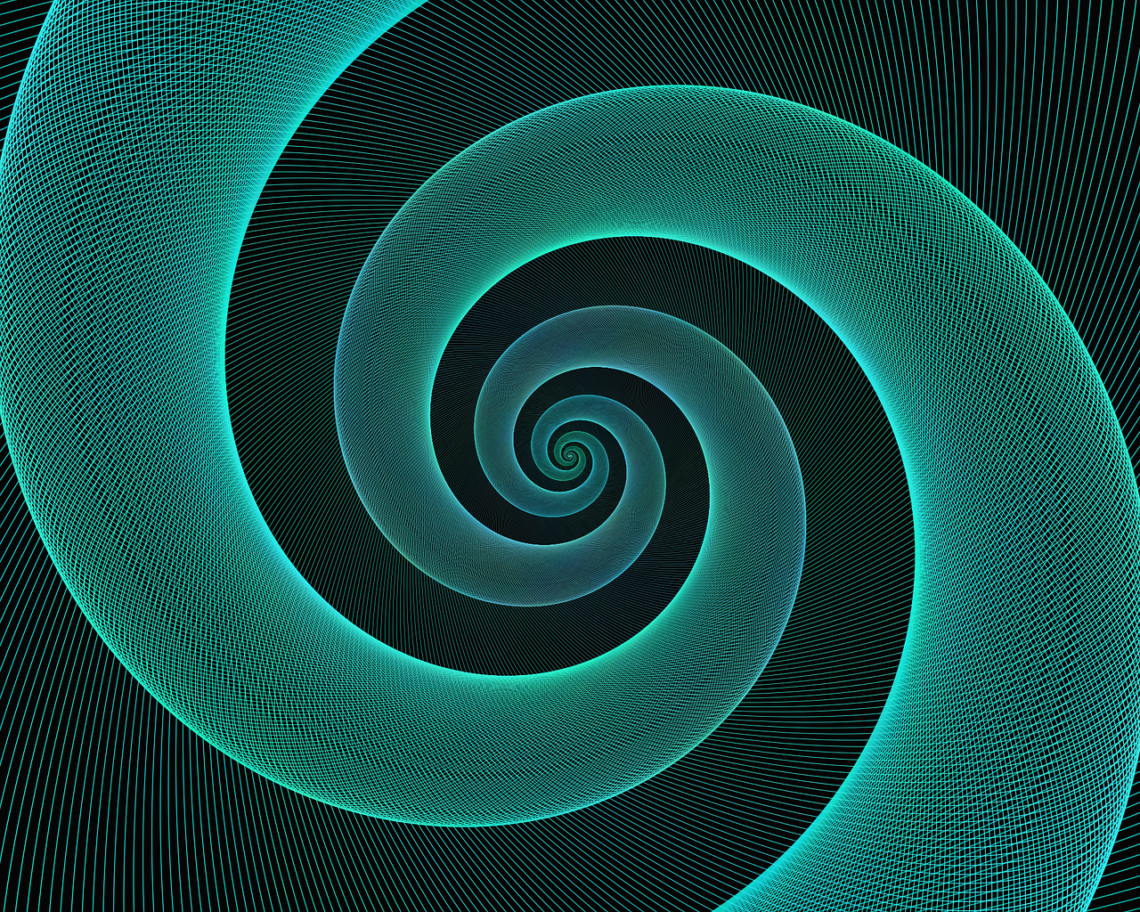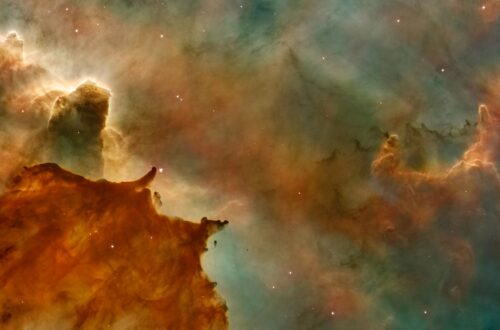
The Nihilism in the Video, A Trip to Infinity
My sister told me about the Netflix video, A Trip to Infinity, and suggested I might find it interesting. So, I made a plan to watch it.
The Video
I watched it but didn’t find it that interesting until the last 25 minutes or so. To give a little background, this video is about the concept of Infinity and how utterly mind-boggling and mind-bending it can be. An array of theoretical physicists, mathematicians, philosophers, and theoretical cosmologists explain its bizarre manifestations. It’s an idea that can boggle the mind, leaving it gasping and wondering.
While infinity didn’t grab me like it did the scientists and mathematicians in the video, the last 25 minutes were quite interesting. That was when the video turned more philosophical as the participants tried to find meaning in infinity despite living finite lives.
I’m certainly not challenging their expertise in their fields of study. They are brilliant, but I do want to examine their overall materialistic worldview from which that brilliance emanates. It is why I found the video’s last 25 minutes so compelling, and the first part so uninspiring.
You see, all these experts are materialists. They found the concept of infinity perplexing because, being materialists, they saw that the physical universe had existed long before they did, and would continue long after they had died.
As we will see in the quotes below, they saw humans as finite beings (“little specks” as they said) in this endlessly expanding universe. It was the juxtaposition of this paradox that overwhelmed them: finite beings in an infinite universe.
The Nihilism
Just listen to one of the participants.
“In 1998, we discovered that the universe is not only expanding, but the rate of expansion is accelerating. The galaxies are moving away from each other with increasing speed. And what this means is that, eventually, we will be cut off from other galaxies.
“And so, as the stars in our galaxy eventually burn out as they will, because all of them have a limited amount of nuclear fuel, there eventually will not be any new energy sources in our galaxy.
“And since we will be cut off from all other galaxies eventually, maybe about 100 billion years from now, there will not be any energy sources at all, and life will completely end. And so, roughly 100 billion years from now that will be the end of life.
“And if we keep on going along the cosmological timeline, galaxies, planets, black holes, everything that we know about; it will all disintegrate. So all that would be left at that point are particles wafting through the darkness.”
The Materialistic Worldview
Infinity is especially interesting to these materialist-minded experts because they have a hard time reconciling our infinitely expanding universe with their finite, meaningless lives. It’s almost as if they ask, “Why isn’t there nothing rather than something? What the hell are we doing here anyway?”
From their materialist worldview, their conclusions make sense because their worldview separates them from their inner and outer lives. They see themselves as accidents of nature. so feel a sense of alienation, of not feeling at home with themselves or the world.
What boggles their mind about “Infinity” is that it’s happening without them, and from their perspective, that makes no sense. It sounds like some kind of cosmic joke. The end of the above quote makes the point.
“galaxies, planets, black holes, everything that we know about; it will all disintegrate. So all that would be left at that point are particles wafting through the darkness.”
The absurdity of it all!
Nihilism Light
But despite this, Brian Greene, a theoretical physicist, offers up this ray of hope, tinged with a little Buddhism.
“Nothing is permanent in that sense. And to my mind, that’s freeing. It frees us from this focus on the permanent as the place where value ultimately resides to a focus on the brief moment that we have, in which we can understand things, create beauty, and experience wonder, regardless of how fleeting that experience may be.”
He starts out with a major tenet of Buddhism: that life is impermanent. But where for the Buddha, this should lead people to shift their focus from the outer to their inner world in the search for self-realization; for Brian Greene and the rest, it just leads them to the nihilistic darkness they believe rests at the center of universe.
Therefore, according to them, all we can do is enjoy our brief moment of life before we are snuffed out forever. It’s a perspective that allows us to get through the day without going insane.
In my last article, I quoted German psychologist Erich Fromm about the psychological costs of such a view.
“What is startling to the psychiatrist is not so much that people go insane, but that they don’t, considering the lonely powerless predicament of this ego.”
Life’s Good, then “Poof” or Worshipping the Speck
Mathematician Steven Strogatz gives us a similar sentiment,
“That the universe itself gets to have its window of life, its window of consciousness and beauty and love, and then, poof. It’s like the universe as a whole is living the way we do. We’re only here for a short time compared to infinity, and, to me, that’s a holy thought. I mean, that’s as close as I can get to being religious.”
We could call that “worshipping the speck,” meaning the speck of time we are blessed to have. It’s like striking a match and watching the flame before it goes out. That small amount of time the flame exists is everything to that flame, then, “poof,” it’s all over. Ah, the pointlessness of it all.
Love and Nihilism
But it is Alan Lightman, a physicist, who best expresses the most intriguing view of the futility of our existence. After explaining the hopelessness of this materialistic worldview, he then surprisingly finds a very powerful meaning at the end of his quote.
“So the universe is very, very, very, very, very big. And it makes our heads spin. I was looking up at the sky one night when I was about ten years old. And I felt like my life didn’t matter. And I guess it was converting large space to large time. One star after another star after another star and wondering whether that would keep going forever.
“I had this sense that the universe existed a long time before I was born, and it would exist a long time after I was dead. And I was just a speck that didn’t matter. I don’t matter. My parents don’t matter. Nothing matters. We’re all just specks. We’re just living in this brief moment.
“None of us were here a million years ago. None of us will be here a million years from now. And the universe doesn’t care. It just goes on and on and on. So, why are we wasting time, you know, going to school, having dentist appointments? All of that.
“Why are we wasting our time? Because none of it matters. And then I fell in love. And that changed everything. That mattered. Even though we might both be specks in the cosmos.”
What I find most interesting about Lightman’s quote is his finding love and that matters. But, he doesn’t see love as an integral part of the universe because he views the universe as dead matter, and dead matter can’t love.
Isn’t Love a Part of the Universe?
So where does this love come from? For materialists, it’s an epiphenomenon of their brains, the result of chemical reactions. It’s not very romantic and probably not close to explaining his feeling of love.
Yet, when he gave this quote, he had a sparkle in his eyes. From his viewpoint, he is just lucky that the randomness of the universe just happened to fall on his number. Thinking the universe could be love never entered his mind. At the end of the quote, he says,
“Then I fell in love. And that changed everything. That mattered. Even though we might both be specks in the cosmos.”
He still sees the universe as something separate from his feeling of love. More on this in a moment.
The Video’s Most Spiritual Perspective
Finally, we have Stephon Alexander, a cosmologist, who gives the most spiritual view of any of the participants,
“There are things that I believe that our minds can’t know, but they are real, and they exist. If we want to call that the infinite if we want to call that spirit if we want to call that God, whatever you want to call that thing, I believe that thing is for real, but not knowable.”
My real issue with their worldview is that they view the universe as independent of themselves, and continuing on long after they have died. Many readers of this article might believe this also, but it’s not true. In a previous article, I wrote entitled “What is the Universe?” Linked here. I explored the concept of whether the universe is independent of us.
What is the Universe?
So, I ask again, what is the universe? Does its materiality exist independently of us? What is its materiality anyway? Scientists tell us physical objects are made up of atoms, but atoms, broken down into their constituent parts, end up being empty space or nothingness. There is no there, there. The scientists in this video know this, but they view this nothingness as literal nothingness, like a vacuum devoid of everything, including meaning. It’s the black hole that many severely depressed people fall into and can’t get out. That’s why this darkness is so scary to many people.
However, people who have had mystical experiences know this is not true. Sure, there is a nothingness there, but this nothingness is not a black hole, but is instead, teaming with possibilities, and filled with wisdom and potential. It is what the Buddha is calling on us to explore. It is an emptiness that is also a fullness. It is the ground of being, Mind, and Awareness. It is everything that is. When we have had such an experience, we no longer believe that this nothingness is meaningless.
Our Perception Creates the Universe
Our perception of this “physical” reality is what brings the universe into being. So, what is the universe outside our perception? We have no idea. Our mind has already sliced and diced it before we get a chance to view it objectively, to see what it is in itself.
In the article I mentioned above, I used the example of how other creatures see the universe with their different photoreceptors. I used the example of a dragonfly with twelve photoreceptors in its eyes compared to our four. They see colors we can’t even imagine. When a dragonfly flies over a lake, it does not see the same lake we do. He sees much more. That goes for every other creature on the planet. None of us see the same universe.
So, what is the universe? We naturally assume all creatures see the same universe we do because we believe the universe is independent of perception. But it isn’t. Each creature, including ourselves, brings the universe to birth by perceiving it. What is the universe when we are not looking at it? Again we don’t know.
The Universe is Not Independent of Us
These scientists assume that the way they see the universe is the way it is, and that’s why they think it will continue beyond their life spans. It’s not true. When we and all life finally vanish, we have no idea what the universe will be since there will be no creatures to bring it into being.
To sum up. The universe is Mind. It is created by Mind and sustained by Mind. We are a part of that Mind. It is our job to realize that we are that Mind, and that Mind includes everything. When we do that, the Tibetan Buddhists say,
“We will have died before we die, so that when we do die, we don’t die.”
When one has that experience, there will be no more thoughts about the universe’s meaninglessness. We are inter-connected with the whole thing. We are that. The universe does not exist separately from us; we are the universe and the universe is us.
To learn more about the Intelligence and Magic of the Universe: Click this link: The Magical Universe
Also, you can visit my website and sign up for my email list: https://www.bruce-mcgraw.com/




